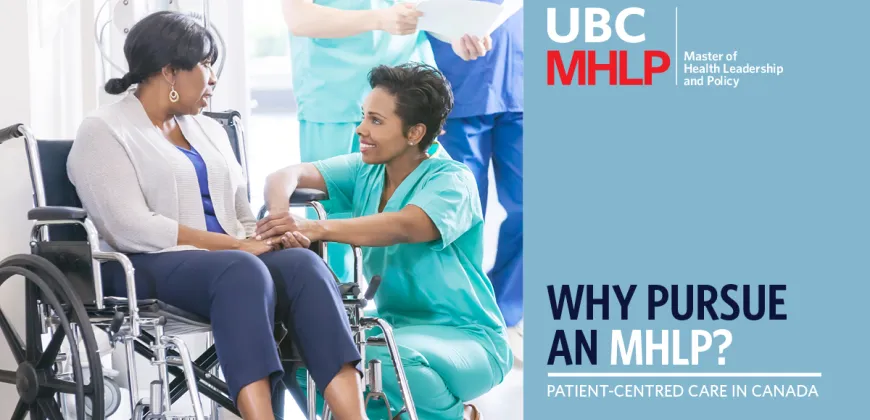Career Change in Health Care

Are you working in the health-care sector and wondering about a career change?
Whether you are employed on the front lines as a nurse or providing allied health-care services, you may feel ready for new challenges and opportunities. If you want to move into a leadership position in health care, a master’s degree is usually a must-have credential.
A professional master’s degree – one that incorporates the development of business and leadership skills – can be a great choice for helping you acquire the credentials, skills, network and project experience needed to make a significant career shift.
Gaining the knowledge and skills to make a career change
UBC’s Master of Health Leadership and Policy was designed for professionals with several years of work experience who are ready to take the next step in their career development.
The program offers a sector-specific specialization in Clinical Education that combines in-depth health-care education taught through the School of Nursing along with business and leadership courses taught through the UBC Sauder School of Business.
The interdisciplinary focus enables students to acquire new health-care knowledge and important skills in business, communication and leadership. A project-based curriculum, site visits and a practicum in the Clinical Education program provide students with opportunities to develop tangible real-world experience and industry connections.
Health Leadership and Policy alumni who have changed careers
Many MHLP alumni have used the degree as a stepping stone to a new career in health care or as a way to pivot into a position with greater levels of responsibility. Vivien Wong, for example, was interested in deepening her leadership skills and saw the MHLP in Clinical Education as a way of supporting her leadership growth.
After graduating, she began working as a Clinical Planner for the Regional Mental Health and Substance Use Program, where she is creating a brand new model of care at an urban and rural site within the Vancouver Coastal Health authority.
Nikko Asistio had worked as a clinical development lead before doing the MHLP in Clinical Education in 2019. After graduating, he advanced into a role as the clinical operations manager for two urgent and primary care centres, managing a staff of 50 that includes teams of physicians, nurse practitioners and allied health-care professionals and overseeing all operations at the facilities.
Move into a new career in health care
As these and the stories of other alumni demonstrate, the curriculum and structure of the Clinical Education program provides a strong foundation for motivated individuals who want to use the program to change careers. The integrated development of business and technical skills gives students both a broad understanding of specific areas of health-care practice, as well as the management and business skills needed to lead teams and projects. It’s this interdisciplinary education that makes the MHLP stand out from other graduate programs with their narrower focus on either health care or business knowledge. Alumni have the best of both worlds, combining a big-picture understanding of the health-care system with the leadership skills to work for transformation.
As Dr. Cheryl Segaric, former Director of the MHLP in Clinical Education says, “As our students graduate and move into the next stage of their careers, I see incredible opportunities for them. There is such a profound need for both educators and leaders in health care, and they are well equipped to step into those positions – using their knowledge and their critical-thinking and communication skills to lead change.”





